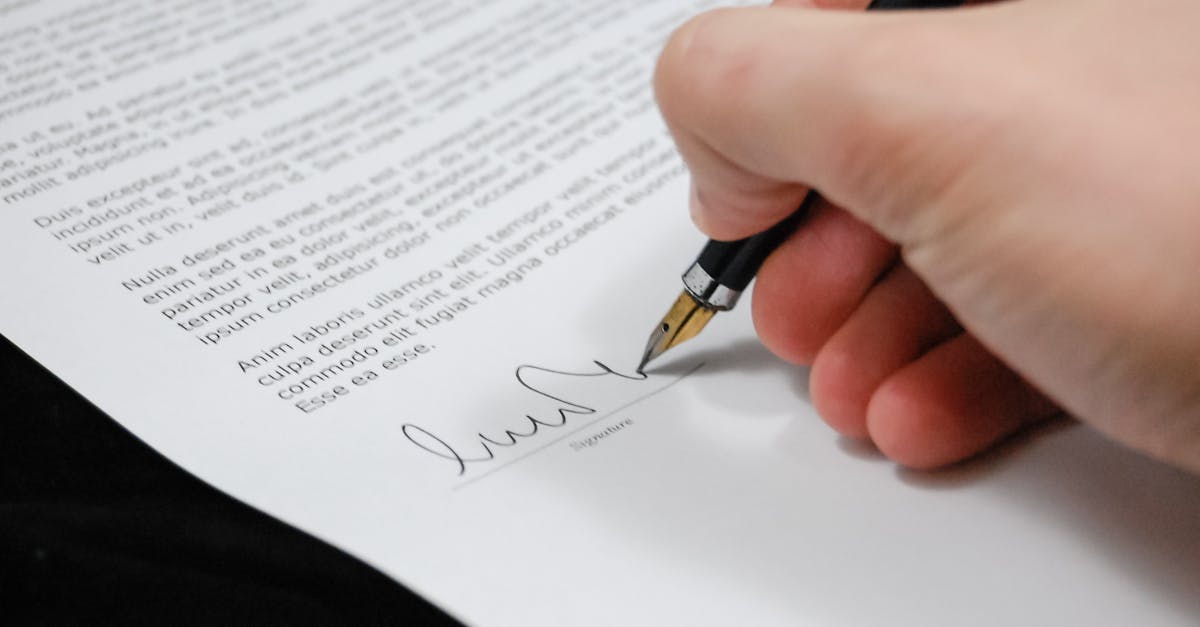
Drafting legal documents
Markhoff and Mittman - Newburgh is a reputable law firm that offers expert service in drafting legal documents. With years of experience and a team of skilled lawyers, they are able to provide thorough and precise legal documents tailored to their clients' specific needs. Whether it be contracts, agreements, wills, or any other legal document, Markhoff and Mittman - Newburgh ensures that all documents are meticulously drafted to protect their clients' rights and interests. Clients can trust in their professionalism and attention to detail when it comes to drafting legal documents.
Common Legal Writing Mistakes to Avoid
Common legal writing mistakes can drastically impact the quality and effectiveness of legal documents. One common error to avoid is using passive voice excessively. Passive voice can make sentences less clear and direct, hindering comprehension for readers. Instead, opt for the active voice to ensure a stronger and more engaging writing style. Another mistake is failing to define key terms clearly. Unclear or ambiguous definitions can lead to misunderstandings and legal complications down the line. It is crucial to establish precise definitions for terms within your legal document to maintain clarity and avoid potential disputes.
Additionally, overlooking grammar and punctuation errors can diminish the professionalism and credibility of legal writing. Correct grammar and punctuation are essential for ensuring that your message is conveyed accurately and effectively. Proofreading your document carefully for grammar and punctuation mistakes is crucial in maintaining a polished final product. Another mistake to avoid is using complex language unnecessarily. While legal documents may require technical terms, using overly complex language can alienate readers and make the document harder to understand. Strive for clarity and simplicity in your writing to enhance readability and comprehension for your audience.
Ensuring Accuracy and Precision in Legal Drafts
Accuracy and precision are crucial aspects of legal drafting that cannot be overlooked. Legal documents must be carefully crafted to convey the intended meaning clearly and effectively. To ensure accuracy in legal drafts, it is essential to pay close attention to details such as grammar, punctuation, and spelling. A single error in a legal document can have significant consequences, potentially leading to disputes or misunderstandings.
Furthermore, precision in legal drafting involves using the appropriate legal terminology and ensuring that the language is concise and unambiguous. Legal professionals must strive to communicate complex legal concepts in a straightforward manner that is easily understood by all parties involved. By utilizing precise language and avoiding unnecessary jargon or convoluted sentences, legal drafts can effectively convey the intended message and help to prevent misunderstandings or misinterpretations down the line.
Enhancing Legal Document Quality
Legal document quality is paramount in the legal profession to ensure clarity, accuracy, and compliance. To enhance the quality of legal documents, it is essential to pay meticulous attention to detail and precision in drafting. Utilizing clear and concise language, avoiding legalese, and structuring the document in a logical manner can significantly improve its quality. Additionally, conducting thorough research, referencing relevant laws and cases, and seeking input from colleagues or senior attorneys can enhance the document's overall quality and effectiveness.
Moreover, incorporating visual aids such as charts, graphs, or tables can help simplify complex information and make the document more accessible to clients or other stakeholders. Using technology tools like document automation software or legal research databases can streamline the drafting process, improve efficiency, and reduce the likelihood of errors. Continuous training and professional development in legal writing skills can also contribute to enhancing the quality of legal documents produced by legal professionals.
Utilizing Technology Tools for Document Creation
Technology tools have become indispensable in the legal field for creating precise and efficient legal documents. Legal professionals can leverage various software applications to streamline the drafting process. These tools offer templates for standard legal documents such as contracts, briefs, and complaints. By using these templates, lawyers can ensure consistency and accuracy across all their documents. Furthermore, technology tools can assist in automating repetitive tasks, saving time and reducing the risk of errors in the drafting process.
In addition to templates, technology tools offer functionalities such as spell check, grammar check, and formatting options. These features help ensure that legal documents are error-free and adhere to the required formatting guidelines. Moreover, some tools come equipped with analytics capabilities that can assist in reviewing the document for compliance with legal standards and best practices. By utilizing these technology tools effectively, legal practitioners can enhance the quality and efficiency of their document creation process.
Tips for Effective Legal Document Review
Effective legal document review is a critical aspect of ensuring the accuracy and thoroughness of legal drafts. One key practice involves meticulously checking for errors, ambiguities, and compliance with relevant laws and regulations. Attention to detail is paramount in this stage to avoid costly legal disputes or unfavorable outcomes for clients. Additionally, a thorough review process can help in identifying and rectifying any potential issues that may impact the integrity or validity of the document.
Another important aspect of legal document review is verifying the consistency of the content throughout the document. Ensuring that the language used is clear, concise, and aligns with the overall purpose of the document is essential. This includes examining the structure of the document, such as headings, subheadings, and paragraphs, to guarantee a logical flow of information. Consistency in terminology and formatting also contributes to the professionalism and credibility of the legal document.
Checking for Errors, Ambiguity, and Compliance
Checking for errors, ambiguity, and compliance is a critical step in the legal document review process. One common error to watch out for is inconsistencies within the document. Ensure that the information presented aligns throughout the text, from the introduction to the conclusion. Ambiguity can arise when language is vague or open to interpretation. It's essential to use clear and precise language to avoid any confusion or misinterpretation by the readers.
Compliance with legal standards and regulations is paramount in legal drafting. Make sure to cross-reference any laws, statutes, or regulations mentioned in the document to confirm accuracy. Additionally, pay attention to the structure and formatting of the document to ensure it adheres to legal standards and best practices. By meticulously reviewing for errors, ambiguity, and compliance, you can enhance the quality and effectiveness of your legal documents.
FAQS
What are some common legal writing mistakes to avoid?
Common legal writing mistakes to avoid include using vague language, improper citation of sources, lack of clarity, and improper grammar and punctuation.
How can I ensure accuracy and precision in my legal drafts?
To ensure accuracy and precision in your legal drafts, it is important to double-check all facts, use clear and concise language, adhere to legal formatting guidelines, and review your work for any inconsistencies.
How can I enhance the quality of my legal documents?
You can enhance the quality of your legal documents by conducting thorough research, seeking feedback from colleagues or supervisors, proofreading meticulously, and staying updated on the latest legal trends and developments.
What technology tools can I use for creating legal documents?
There are various technology tools available for creating legal documents, such as document automation software, legal research databases, electronic signature platforms, and cloud storage solutions.
What are some tips for effective legal document review?
When reviewing legal documents, be sure to check for errors in spelling and grammar, clarify any ambiguous language, ensure compliance with relevant laws and regulations, verify all references and citations, and confirm that the document aligns with the client's objectives.
